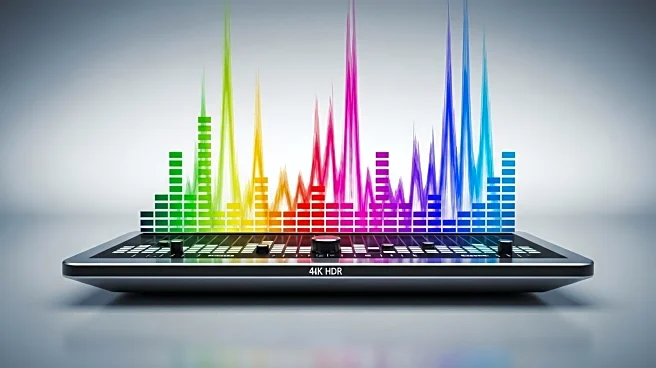What's Happening?
Spotify has announced the removal of over 75 million AI-generated 'spammy' music tracks from its platform over the past year. This action is part of the company's efforts to combat unauthorized use of artists' voices and protect the integrity of its music catalog. Spotify is enhancing its enforcement against impersonation violations and introducing a new spam filtering system. The company is also working with partners to label tracks that incorporate AI, aiming to provide greater transparency to listeners. This move comes amid growing concerns in the music industry about the impact of AI-generated content, with some creators embracing the technology while others face challenges from unauthorized impersonations.
Why It's Important?
The removal of AI-generated tracks by Spotify highlights the ongoing challenges faced by the music industry in adapting to new technologies. AI tools have made it easier to create large volumes of music, leading to potential exploitation through impersonations and spam content. This situation affects legitimate artists, as royalties generated from AI tracks can dilute payments to human creators. Spotify's actions are crucial in maintaining trust and integrity within the platform, ensuring that artists retain control over their creative processes. The company's efforts to label AI-generated music and enforce stricter rules on vocal deepfakes are steps towards addressing these issues and supporting artists' rights.
What's Next?
Spotify plans to roll out a music spam filter to identify and tag uploaders of AI-generated content, preventing these tracks from being recommended by its algorithm. The company is also supporting a new industry standard for disclosing the use of AI in music creation, developed by DDEX. While artists' use of this standard will be voluntary, it aims to strengthen trust across the platform. Spotify's continued efforts to tackle AI-generated spam and impersonations will likely influence other streaming services to adopt similar measures, shaping the future landscape of digital music distribution.









